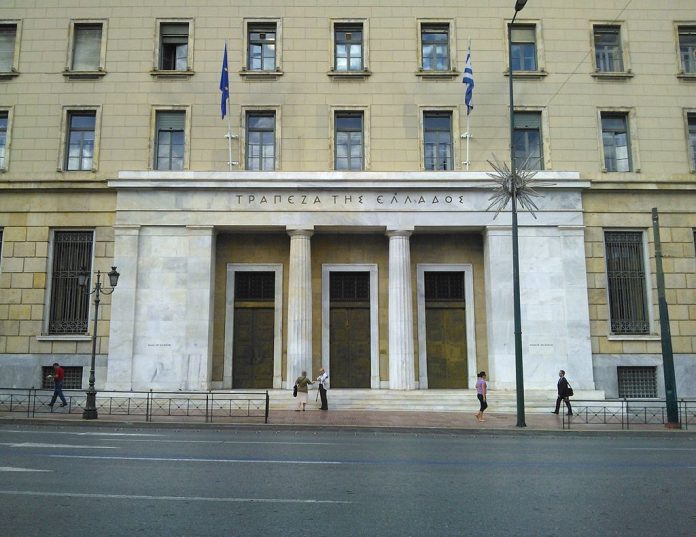In a few days, Greece is about to regain its financial and political independence, according to the country’s coalition government headed by Europe’s erstwhile enfant terrible Alexis Tsipras. He has repeatedly referred – in these terms – to the expiry of the third bailout agreement, which he signed back in July 2015. Meanwhile, economic output in the country returned to positive growth rates in 2017, with the GDP increasing by 1.4%, but that’s a GDP that has shrunk by at least a quarter since 2009 and unemployment soars at over 20%. The key drivers of growth last year were exports of goods/services and investment, as reported by the Bank of Greece. So, is sunshine returning to the Mediterranean country that not so far ago was literally on the verge of leaving the Eurozone?
Post-bailout straitjacket?
Or could it be that Greece is merely exchanging its bailout straitjacket for a new and more elegant one? It does look that way. Nominally, the bailout expires on 20 August, but commitment to frugality – aka austerity – stays. And there’s a subtle play upon words – ‘monitoring’ is now replaced by ‘enhanced surveillance’.
That’s the official name of the supervision that the European Commission will continue to exercise over Greece. The enhanced surveillance arrangement will allow Brussels to scrutinise Athens very closely. EU officials will visit Athens every three months, presumably to spot early warning signs of possible deviation from the implementation of commitments undertaken and make sure that Greek governments apply agreed-upon reforms on taxation, pension cuts and labour market optimisation. This is in line with the deal struck last June between Greece and Eurozone partners, which is meant to ensure that fiscal policies do not go off track and that painstaking reform efforts are not abandoned halfway down the road.
To provide an incentive for future governments in Athens not to reverse the hard won reforms promoted under the three bailouts since 2010, Eurozone member states have agreed to offer Greece cash payments of €1.2 billion a year until 2022, if it sticks to the economic course jointly charted with creditors. The money will come from profits made by Eurozone central banks on their holdings of Greek sovereign bonds that will gradually mature over the next four years. These funds will be an inducement, but will also be subject to conditionality, i.e. the transfers will be authorised only in case pre-set conditions are duly met by Greece.
Is a post-bailout straitjacket needed, in the first place? It probably is, given that Greece is already on a pre-election trail and pressure for hand-outs will only be growing. But even after the general elections – due by September 2019 at the latest – have got out of the way, populism will not evaporate in the country overnight. This is why a watchful eye will always be needed.
The financial markets as an umpire
The difference is that this time around the umpire will be the international financial markets, not renowned for their leniency or a sense of political solidarity demonstrated to Greece by EU institutions and member states. The European Commission’s post-bailout quarterly reports will be made public and, obviously, they will be seriously taken into account by the financial markets, so their reaction will provide a rough indicator of actual progress or delay of reforms.
Will Athens be better off in this new set-up or will it be in a tighter spot than before? A meaningful answer may be provided by the comparison between Japan and Greece, the two most indebted economies worldwide, in terms of their public debt-to-GDP ratio. In 2017, Japan’s cumulative public debt accounted for 253% of its GDP, while Greece’s debt stood at 178%. However, in Japan’s case that huge amount of money is owed predominantly to domestic lenders. A big chunk of Greece’s cumulative public debt is in the hands of foreign creditors, which only accentuates the country’s vulnerability to external pressure.
In a recent report, the Bank of Greece points to the recent political crisis in Italy and the ensuing increase in Greek government bond yields, which shows how feeble the Greek economy still is, as a sharp increase in the cost of borrowing could derail both the economic recovery and debt servicing bill. Thus, in order to bolster market confidence, Greece must continue with the implementation of unpalatable reforms, especially those concerning public administration and the strengthening of independent institutions.
Can clouds be driven away?
A sustainable return of Greece to the international sovereign bond markets will be the ultimate and definitive proof that the economy has overcome the crisis. Hence the importance of reforms and a decisive shift to a new economic model of Greece. Any other outcome would undermine growth prospects and would perpetuate the country’s persistent structural problems.
The long-term recovery of Greece’s economy can only be export-led. Therefore, what will be at stake is a substantive rise in productivity and competitiveness. Which is not only a function of labour cost – that has been slashed over the last eight or nine years. It is also a matter of political stability, a business-friendly legal framework that minimises red tape, a slim and agile public administration, modern technologies built into manufacturing and services, the quality of human resources (therefore, education and professsional training as well), etc. That’s what would drive clouds away from the Mediterranean sky over Greece in the long run.
*Plamen Tonchev is a Senior Researcher at the Athens-based Institute of International Economic Relations (IIER)

